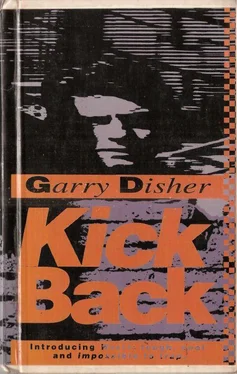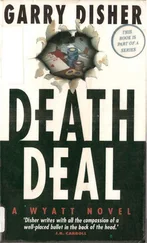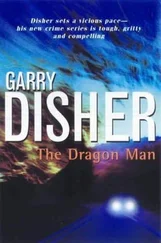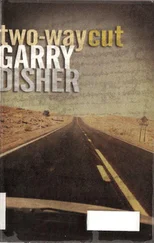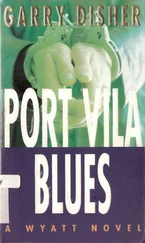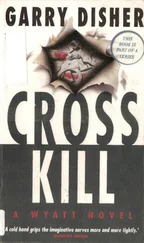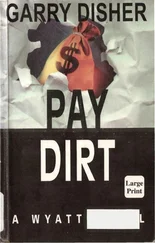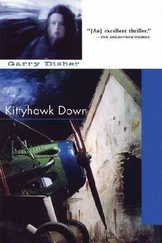Garry Disher - Kick Back
Здесь есть возможность читать онлайн «Garry Disher - Kick Back» весь текст электронной книги совершенно бесплатно (целиком полную версию без сокращений). В некоторых случаях можно слушать аудио, скачать через торрент в формате fb2 и присутствует краткое содержание. Жанр: Криминальный детектив, на английском языке. Описание произведения, (предисловие) а так же отзывы посетителей доступны на портале библиотеки ЛибКат.
- Название:Kick Back
- Автор:
- Жанр:
- Год:неизвестен
- ISBN:нет данных
- Рейтинг книги:3 / 5. Голосов: 1
-
Избранное:Добавить в избранное
- Отзывы:
-
Ваша оценка:
- 60
- 1
- 2
- 3
- 4
- 5
Kick Back: краткое содержание, описание и аннотация
Предлагаем к чтению аннотацию, описание, краткое содержание или предисловие (зависит от того, что написал сам автор книги «Kick Back»). Если вы не нашли необходимую информацию о книге — напишите в комментариях, мы постараемся отыскать её.
Kick Back — читать онлайн бесплатно полную книгу (весь текст) целиком
Ниже представлен текст книги, разбитый по страницам. Система сохранения места последней прочитанной страницы, позволяет с удобством читать онлайн бесплатно книгу «Kick Back», без необходимости каждый раз заново искать на чём Вы остановились. Поставьте закладку, и сможете в любой момент перейти на страницу, на которой закончили чтение.
Интервал:
Закладка:
Again he walked and ran, conscious of pain and the blood spreading over his hip. He circled left, dodging tussocks of grass and treacherous hollows where cows and horses had left deep imprints in the muddy soil. Once he slipped, his left leg sliding away beneath him on a fresh cow pat. He recovered, clutching at his side, and ran on.
His run took him across the top corner of the paddock. On the other side was another fence, and then he was in the shelter of his golden cypresses.
He stopped. Ivan Younger’s white Statesman was parked at the side of the sunken road, fifty metres down from the entrance to his driveway.
He waited for two minutes, isolating sounds: a sheepdog alerted by the rifle fire, its owner shouting at it to shut up, a motor starting up somewhere. Almost eleven o’clock. Wyatt knew that some of the neighbours went to eleven o’clock church but it could also be someone deciding to investigate. Suddenly Wyatt knew how he would do this. He would kill Sugarfoot, dump him in Ivan’s Statesman in Frankston, then come back and commiserate with one or two of the neighbours about these bloody weekend shooters tramping all over the place.
The pain had eased a little now that he’d rested. He approached the house at a walking pace, keeping close to the cypress trees.
He paused at the final tree and surveyed the open ground that sloped down to the apple orchard. That’s when he saw him. Sugarfoot, wearing cowboy boots, stetson hat and long coat, was slipping from the edge of the pine trees and into the orchard about three hundred metres away.
Wyatt ran crouched over to the broad front verandah of his house. He had about a minute before Sugarfoot was stationed where he could see the verandah and the front door and windows. Tension gave him an acute sense of things. He saw, as if for the first time, the warped boards and nail heads on his verandah, the dusty cobwebs on the old lathe-turned posts.
The front door and the window to the left of it were always locked, but his bedroom window was partly open. He removed the insect screen and tugged on the bottom pane, tensing himself for shots from the orchard. The window resisted him, gripped by the old moisture thickened frame. Suddenly it protested like a shrieking bird and moved freely. Wyatt tumbled over the sill and into the room. The window exploded, coating him in shards and chips of glass. He rolled across to the bed and reached under it for his.38.
And blacked out.
When he opened his eyes he had a sense of weightlessness. He didn’t know if he’d been out for seconds or for minutes. The world tipped left and right.
He waited.
When he felt steady, he reached under the bed again and found the.38. It felt reassuring in his hand. It was chambered for five rounds only, unlike his large capacity Browning automatic-but double-action automatics tend to jam, or the clip may crimp if it’s slammed home. He’d fitted a fat, natural-rubber grip to the.38. The metal surface and moving parts were finely coated with a protective layer of oil, and the front sight was rounded so that it wouldn’t drag in the holster or catch on his clothing. The gun seemed to slide into his hand.
He switched off the safety catch and ran through to the laundry at the back of the house. Here there was a narrow broom cupboard where he stored old hats, coats, boots and shoes. He selected a green, quilted, waterproof jacket with a hood. He removed the sodden slippers and put on light, sturdy boots. Under a false panel in the bottom of the cupboard were several boxes of cartridges. He opened a box and poured a dozen loose cartridges into his pocket.
Now to get Sugarfoot. Once he was down in that belt of cover he would have the advantage. Sugarfoot’s rifle was unbeatable for long-distance pinning down and accuracy, but useless for snap shooting and close work among trees and undergrowth. Unless Sugarfoot also carried a pistol. Wyatt had to assume he did.
Another shot slammed into the bedroom. Sugarfoot was still in the orchard, still letting Wyatt know he was there. He had a clear view of the entire northern side of the house and would notice if Wyatt left by either the back or the front door.
Wyatt walked through to the bathroom. It faced south. He opened the window above the bath, knocked out the insect screen, and squeezed out. He moved slowly, conserving energy.
The land on the southern side sloped down to an area of scrub fronted by blackberry bushes. In the distance was Shoreham, then the sea, where black and grey clouds seemed to bunch up before scudding in over the coastline. Wyatt had been calmed by his rest in the house. Now he realised how cold and damp the day was.
A choked path wound through the blackberry thicket.
Wyatt made slow time, thorns catching at his clothing and tearing his skin. He emerged where the blackberries met the scrub and picked his way through it, dodging branches and whipping twigs and leaves.
At the bottom corner of the scrub he broke cover and ran doubled-over to the edge of the pine plantation. Sugarfoot might be back in the pine trees, so he paused before he advanced too far in. The trees were tall, planted close together in neat rows, their upper branches woven together, screening out the meagre light of winter. There was no undergrowth, and few inhibiting lower branches. Pine needles carpeted the ground. One could move through here almost unseen and unheard.
Wyatt stood against the flank of one of the larger trees, the.38 cocked in his hand. He stood for five minutes, listening, adjusting to the dim, resinous atmosphere.
It was midday now. People would be coming home from church soon. If they’d had a chance to compare notes about hearing heavy-bore rifle shots earlier this morning, they might now decide to do something about it.
Wyatt was in the corner of the pine trees that faced the back of his house. That put him at a disadvantage if Sugarfoot advanced along that flank from the other end and drove him back into the inadequate shelter of the scrub and the black-berries. He headed away from the house for a hundred metres and then turned north, making a long, slow circle around to where the pine trees ended and the apple trees began. He wanted to come in behind Sugarfoot.
Then he saw him. Sugarfoot had not wasted time doubling back from the orchard. Sugarfoot saw Wyatt, too. He stopped, swung the big rifle around, and fired. The sound was flat in that enclosed space. A wedge of bark flew off the trunk of a tree next to Wyatt. But it was blind firing. Sugarfoot didn’t have the time or manoeuvrability for a clear shot.
Wyatt turned, ran crashingly towards the orchard for several seconds, stopped, and slipped quietly to his left. He waited. If Sugarfoot circled around, expecting to intercept him, he would follow.
Suddenly Sugarfoot shouted, ‘You’re finished, Wyatt.’
The mug was actually giving away his location. Wyatt stood still, tracking the voice. As he’d expected, Sugarfoot had turned and was cutting through the pine trees toward the orchard. He set off after him.
‘You hear me, Wyatt? You hear me?’
Sugarfoot was now making no effort to be quiet. The cowboy boots drummed on the pine needles, the skirt of the long coat caught on the tree trunks. He was alternately shouting and muttering.
‘Cunt! Didn’t have to kill him. Ivan never hurt you. He fucking put work your way’
The voice dropped again, muttering and complaining.
Wyatt listened and watched. He had Sugarfoot pinpointed now, and began to stalk him. Sugarfoot had dumped the rifle. He was carrying a long-barrelled pistol. From this distance it looked like a Colt Woodsman; not a bad choice, light and accurate. But its slender modern lines and sculptured grip looked incongruous, for Sugarfoot was prowling like a Clint Eastwood caricature, the broad hat low on his brow, the long coat giving him the look of an avenger.
Читать дальшеИнтервал:
Закладка:
Похожие книги на «Kick Back»
Представляем Вашему вниманию похожие книги на «Kick Back» списком для выбора. Мы отобрали схожую по названию и смыслу литературу в надежде предоставить читателям больше вариантов отыскать новые, интересные, ещё непрочитанные произведения.
Обсуждение, отзывы о книге «Kick Back» и просто собственные мнения читателей. Оставьте ваши комментарии, напишите, что Вы думаете о произведении, его смысле или главных героях. Укажите что конкретно понравилось, а что нет, и почему Вы так считаете.
